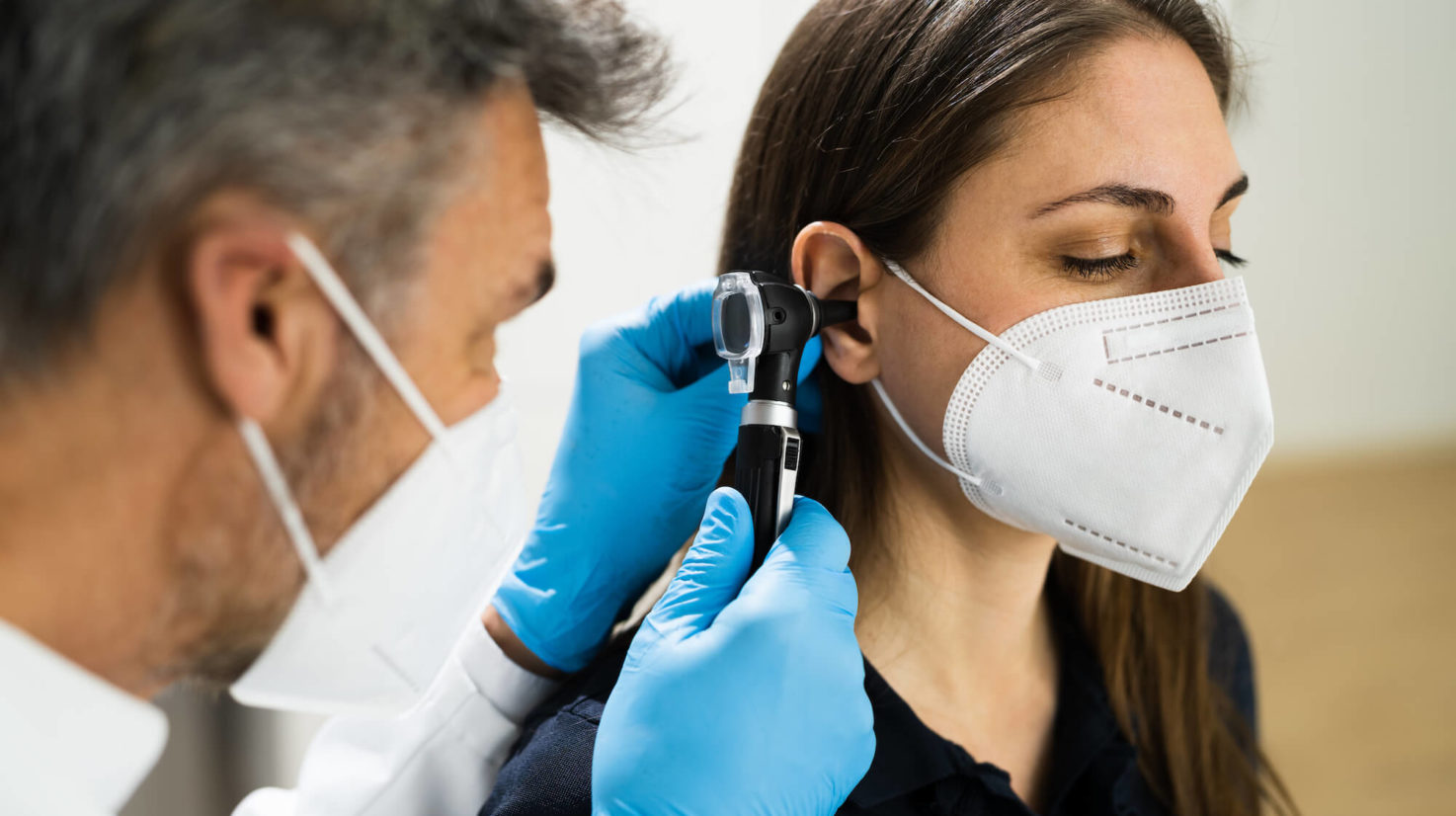What Makes an ENT Over a General Practitioner for Persistent Issues
What Makes an ENT Over a General Practitioner for Persistent Issues
Blog Article
Exploring the Area of Otolaryngology: What to Expect When You Seek Advice From an ENT
Otolaryngology, generally referred to as ENT, includes the diagnosis and therapy of nose, ear, and throat disorders. For those experiencing relevant issues, seeking advice from an ENT specialist can supply clarity and alleviation. Understanding what to expect during such assessments is necessary for reliable communication and care. This overview will describe key aspects of the ENT experience, consisting of typical reasons for brows through and the processes included in medical diagnosis and therapy.

Recognizing Otolaryngology: An Introduction
Otolaryngology, usually referred to as ENT (Ear, throat, and nose) medicine, is a specific branch of medication that focuses on the diagnosis and therapy of conditions affecting these vital locations of the body. This area includes a wide variety of disorders, including those pertaining to hearing, equilibrium, respiratory system function, and speech. Otolaryngologists are educated to take care of both clinical and surgical treatments, using sophisticated methods and technologies. Their know-how expands beyond traditional ailments, addressing issues such as allergies, sinus infections, and hearing loss. In addition, they play a vital function in the management of head and neck cancers, offering extensive care customized to specific client requirements. Overall, otolaryngology stays vital for preserving health and wellness and lifestyle in affected individuals.
Common Factors to See an ENT Specialist
Many people look for the expertise of an ENT expert for a range of factors, reflecting the diverse nature of problems that affect the ear, throat, and nose. Usual problems consist of chronic sinusitis, which often results in consistent nasal congestion and facial discomfort. Allergic reactions and their linked signs and symptoms, such as itching and sneezing, likewise motivate check outs to these professionals (Hearing). Hearing loss, whether sudden or gradual, is another substantial factor for assessment. In enhancement, people might seek examination for throat conditions, including relentless hoarseness or ingesting troubles. Rest apnea, defined by disturbed breathing during rest, is often attended to by ENT professionals. Each of these conditions highlights the importance of specialized care in managing complex ENT-related health and wellness concerns
Planning for Your ENT Visit
When planning for an ENT visit, it is vital to gather appropriate info and consider any kind of details worries. Individuals must assemble a detailed case history, consisting of previous ear, nose, or throat problems, surgeries, and present medicines. Documenting symptoms-- such as frequency, period, and extent-- can provide beneficial insights for the ENT specialist. Additionally, individuals need to prepare a listing of questions they wish to ask, guaranteeing that all problems are dealt with during the browse through. Bringing along any type of pertinent medical documents or test outcomes can further help the ENT in recognizing the client's problem. Clients ought to confirm their consultation details, consisting of area, time, and day, to lessen any type of final complication. Proper preparation can boost the performance of the examination and result in far better results.
What to Anticipate Throughout the Appointment
As the assessment begins, the individual can anticipate to take part in an extensive discussion with the ENT specialist concerning their signs and case history. The professional will ask regarding the period, frequency, and severity of symptoms such as hearing loss, nasal congestion, or aching throat. Furthermore, the person's previous clinical problems, medications, and any kind of pertinent family members history will certainly recommended you read be reviewed, aiding the expert in developing a complete understanding of the person's health and wellness. The ENT may additionally ask concerning lifestyle elements, such as direct exposure to irritants or irritants. This open discussion establishes a structure for the appointment, making sure that the client's issues are resolved and establishing the stage for any kind of required examinations or referrals for therapy.
Analysis Examinations and Procedures in Otolaryngology
A series of diagnostic hearing aid doctor examinations and treatments are important in otolaryngology to properly evaluate and detect conditions affecting the nose, throat, and ear. Typical examinations include audiometry, which gauges hearing function, and tympanometry, assessing center ear pressure. Nasal endoscopy allows visualization of the nasal flows and sinuses, while laryngoscopy analyzes the throat and vocal cables. Imaging techniques, such as CT scans and MRIs, supply in-depth views of head and neck frameworks. Allergic reaction screening may also be carried out to determine triggers for sinus or breathing problems. These diagnostic tools allow ENT experts to develop a comprehensive understanding of people' problems, making sure customized and effective management plans. Proper medical diagnosis is necessary for successful therapy outcomes in otolaryngology.
Therapy Options Supplied by ENT Specialists
ENT professionals use a selection of treatment options customized to resolve specific problems impacting the ear, nose, and throat. These therapies vary from conservative approaches, such as drug and lifestyle adjustments, to even more invasive treatments. For circumstances, allergic reactions might be taken care of with antihistamines or immunotherapy, while persistent sinusitis may call for nasal corticosteroids or sinus surgical procedure. For hearing loss, ENT experts frequently recommend hearing help or surgical treatments like cochlear implants. In instances of throat problems, alternatives can include speech treatment or surgeries to get rid of obstructions. Additionally, they may give support for handling sleep apnea, consisting of making use of CPAP tools or surgical interventions. On the whole, the objective is to enhance individuals' quality of life via customized care and efficient therapy methods.
When to Look For Follow-Up Treatment With an ENT
When to look for follow-up care with an ENT professional is crucial for handling ongoing symptoms or difficulties connected to ear, throat, and nose problems, acknowledging. Individuals must take into consideration scheduling a follow-up appointment if signs and symptoms linger regardless of first therapy, such as persistent ear pain, nasal congestion, or throat pain. Modifications in hearing, equilibrium issues, or uncommon nasal discharge might also necessitate further evaluation. Additionally, if a client experiences side impacts from prescribed medications or has undertaken a procedure, follow-up treatment is vital to check healing and attend to any worries. Prompt assessments can ensure efficient administration my latest blog post of problems, avoid possible issues, and provide comfort concerning one's wellness. Seeking follow-up care advertises aggressive health administration in otolaryngology.
Often Asked Inquiries

What Certifications Should I Search for in an ENT Specialist?
When seeking an ENT professional, one should try to find board certification, pertinent experience, and solid individual reviews. In addition, effective interaction skills and a thoughtful approach can greatly boost the total therapy experience.
How Do I Pick the Right ENT for My Requirements?
Selecting the right ENT professional involves examining their qualifications, experience, and client reviews (ENT surgery). It is vital to consider their interaction design and technique to treatment, ensuring they straighten with the person's details health and wellness requirements and choices
Exist Any Threats Associated With ENT Procedures?
The dangers related to ENT treatments may consist of infection, bleeding, anesthesia complications, and potential damages to bordering frameworks. Individuals ought to discuss these threats with their medical professional to understand individual worries and warranty notified decisions.
Exactly How Can I Manage Anxiousness Prior To My ENT Appointment?
To manage stress and anxiety prior to a visit, people can exercise deep breathing exercises, imagine favorable outcomes, prepare questions beforehand, and look for assistance from buddies or family, cultivating a sense of confidence and calmness.
What Should I Do if I Experience Negative Effects From Therapy?
The person must immediately report them to their medical care company if side effects from therapy occur. Adjustments to treatment or extra treatments might be necessary to assure safety and efficiency in managing their condition - Sinus. As the appointment begins, the person can expect to engage in a detailed conversation with the ENT specialist regarding their signs and symptoms and clinical history. These diagnostic tools enable ENT experts to create a thorough understanding of clients' problems, making sure customized and efficient monitoring plans. ENT experts offer a range of treatment options tailored to address particular problems influencing the ear, throat, and nose. When seeking an ENT expert, one ought to look for board accreditation, appropriate experience, and solid individual testimonials. Picking the right ENT specialist entails assessing their credentials, experience, and individual evaluations
Report this page